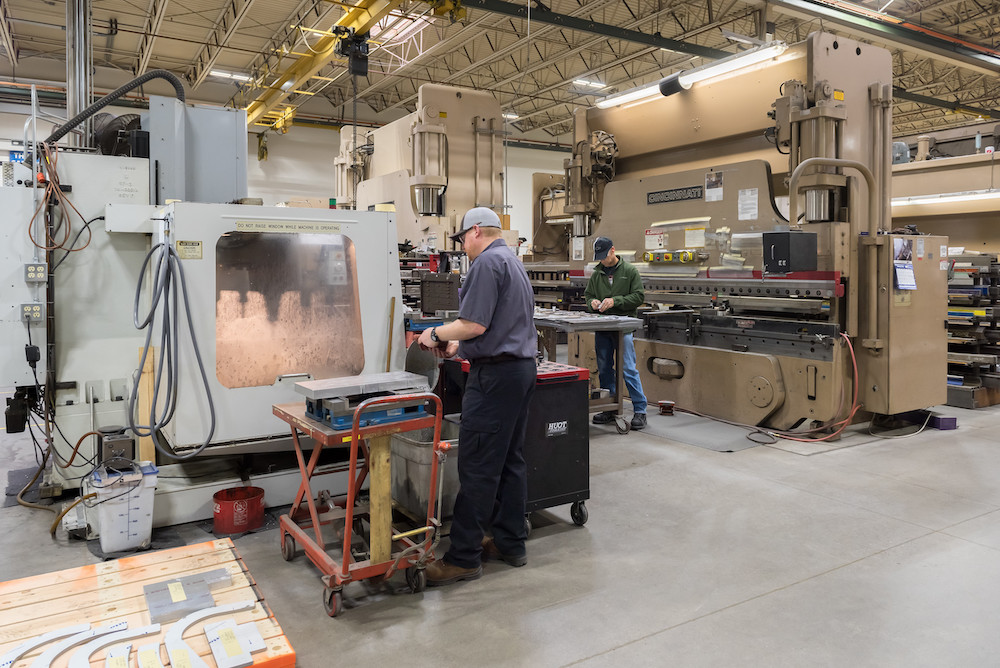
Manufacturing companies in the USA, including Anderson Dahlen, are adapting quickly to the COVID-19 impacts on our daily activities. A key challenge for a manufacturing company is maintaining production and allowing employees to keep working, while also meeting CDC recommendations on Social Distancing. Anderson Dahlen is responding with decisive and intentional plans to manage production facilities in Ramsey MN and Waconia MN.
As of today, our manufacturing strategy is a careful balance between proactive management of work with the changing health impacts. The current situation has forced major changes to our routines. Anderson Dahlen presently works with multiple shifts that offer employees an opportunity to handle their family situations and still work, even if on a modified schedule from their normal situation.
We have also segmented operations at both facilities into strict zones. There is no face to face contact from one zone to another. If a limited exposure were to occur, a zone can be closed down while the rest of the plant continues to operate. We are committed to a calm, confident, and prudent approach to keeping our manufacturing strong and keeping our employees safe.
In the future, Anderson Dahlen will be ready to meet an expected increased demand to provide Made in the USA manufacturing for stainless steel components and equipment fabrication.
Also, at this time, we do have available manufacturing capacities which could help customers who have supply chain disruptions. Please contact us if you have any questions.
